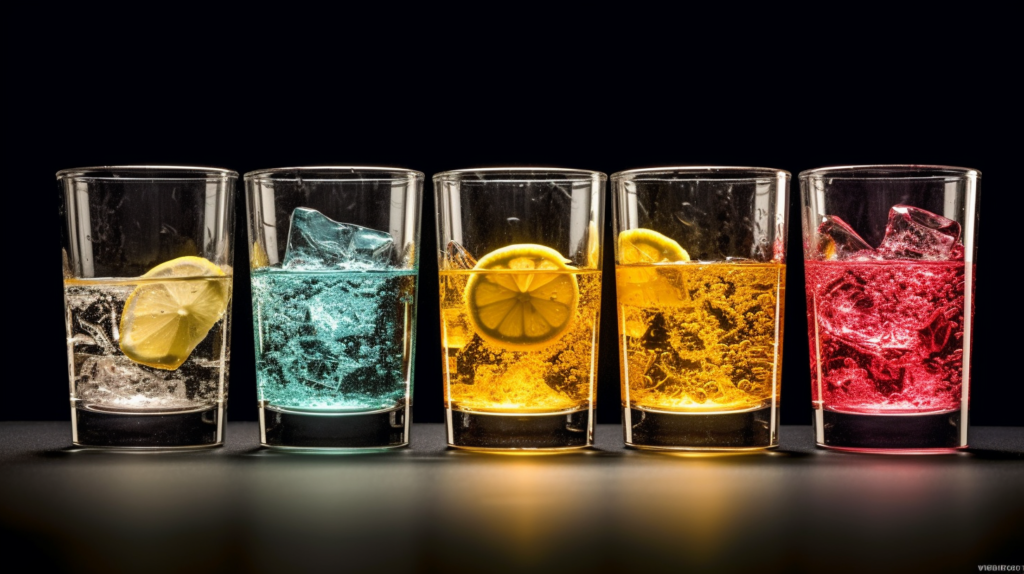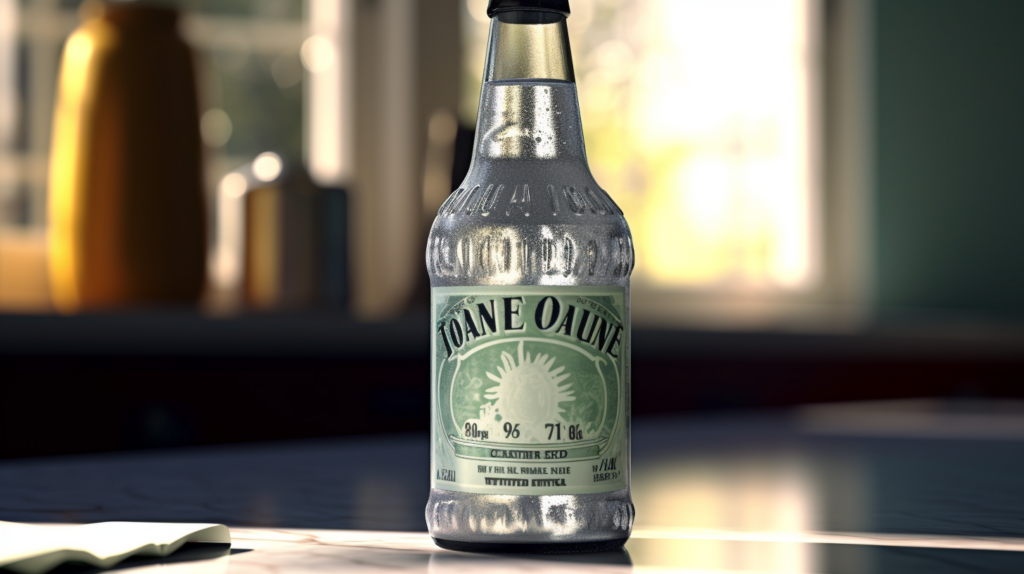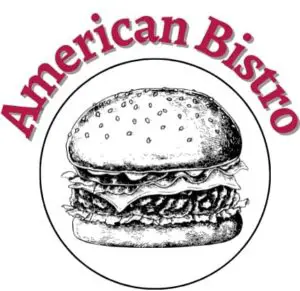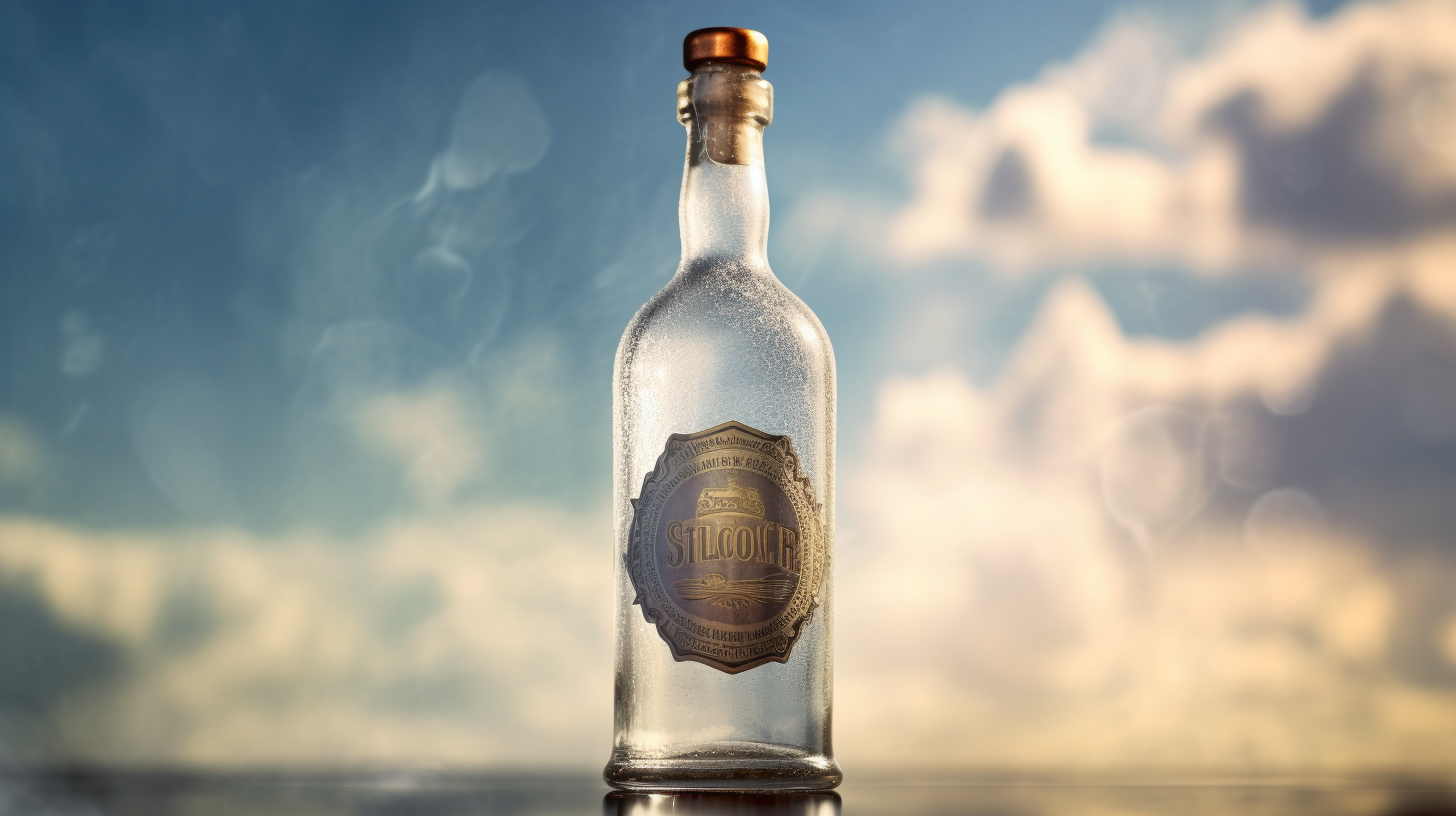Tonic water is a popular mixer for alcoholic beverages, particularly gin. The beverage’s unique bitter taste and effervescence make it a favorite among cocktail enthusiasts. However, like any other consumable product, tonic water has a shelf life that must be taken into consideration. In this article, we will explore the factors that affect tonic water’s shelf life and provide tips on how to prolong its freshness.
Did you know that tonic water has been around since the 18th century when it was used as a treatment for malaria? It wasn’t until the introduction of carbonation in the early 19th century that tonic water became popular as a drink mixer.
Today, tonic water is widely available in both regular and diet versions, but how long does it last before losing its flavor or becoming unsafe to consume? Understanding the composition of tonic water and its storage requirements can help answer this question.
Key Takeaways
- Proper storage conditions and packaging materials can influence the shelf life of tonic water.
- Unopened bottles of tonic water can last from six months to two years depending on their composition, while opened bottles should be consumed within four days for optimum freshness.
- Signs of spoilage include changes in color, mold or sediment floating in the bottle, strong odor, or metallic taste.
- Expired tonic water can be repurposed for DIY projects or alternative uses such as in homemade popsicles or facial masks.
Understanding Tonic Water Composition

The composition of tonic water, which typically includes carbonated water, high fructose corn syrup or sugar, citric acid, natural flavors, and quinine, plays a crucial role in understanding its properties and potential longevity.
The carbonation level is one such property that affects the shelf life of tonic water. Higher levels of carbonation tend to preserve the quality of tonic water for longer periods than low-carbonated ones. This is because the carbon dioxide gas dissolves into the drink when it is under pressure and creates an acidic environment that inhibits microbial growth.
Another significant factor related to the composition of tonic water that affects its longevity is its flavor profile. Tonic water contains natural flavors such as lemon or lime extracts that can contribute to its taste and aroma. These flavors can interact with other components in different ways depending on their quality and concentration, ultimately affecting how long they last. For example, some natural flavors may oxidize quickly under certain conditions like exposure to light or heat.
Apart from these factors relating to composition, there are several other factors affecting tonic water shelf life such as storage conditions and packaging materials used. Proper storage conditions include keeping it at room temperature away from direct sunlight or heat sources. It is also important not to expose it to air since this can cause oxidation leading to deterioration in taste quality over time. The type of packaging material used should be considered since it can influence how well preserved a product remains during shipping or storage.
Understanding the composition of tonic water provides valuable insights into how long it lasts before losing quality for consumption. Several factors affect its shelf life beyond just what goes into making it; thus proper care must be taken when storing or transporting this beverage if you want it to last longer without losing any desired qualities!
Factors Affecting Tonic Water Shelf Life

Factors such as pH levels, presence of preservatives, and storage conditions can significantly impact the shelf life of tonic water.
The pH level of tonic water plays an important role in determining how long it will last. Tonic water has a pH range between 2.5 to 3.5, which is highly acidic due to the presence of citric acid. This acidity acts as a natural preservative that inhibits bacterial growth and extends the shelf life of tonic water.
Apart from pH levels, the presence of preservatives also affects the shelf life of tonic water. Quinine is one such preservative that is commonly used in tonic water production along with other additives like sodium benzoate or potassium sorbate. These preservatives act as anti-microbial agents that prevent spoilage and extend the shelf life of tonic water. However, excessive use of these chemicals can affect the taste and quality of tonic water.
Tonic water storage also plays a crucial role in its shelf life. Proper storage conditions like cool temperature, dark place away from sunlight, and sealed containers help maintain its freshness for longer periods. Exposure to light and heat can break down quinine molecules present in tonic waters leading to a bitter taste and spoiling its quality over time.
Factors such as pH levels, presence of preservatives, and storage conditions significantly impact the shelf life of tonics waters by preventing bacterial growth or spoilage over time. Properly stored unopened bottles have an average expiration date ranging from six months to two years depending on their composition while opened bottles should be consumed within four days for optimum freshness.
In the next section, we will discuss how to store tonic waters properly for longer-lasting results without compromising their taste or quality.
How to Store Tonic Water Properly
Proper storage conditions play a crucial role in preserving the taste and quality of tonic water. Here are four essential tips to ensure that your tonic water is stored correctly:
- Keep it in a cool, dry place: Tonic water should be kept away from direct sunlight and heat sources as they can affect its quality. Ideally, store it at room temperature or lower.
- Seal the bottle tightly: Once opened, make sure to seal the bottle tightly before storing it to prevent air from entering. Oxygen tends to degrade the flavor of tonic water quickly.
- Use appropriate containers: If you’re transferring tonic water into another container, make sure it’s clean and specifically designed for storing beverages. Avoid using plastic bottles as they can leach chemicals into the drink.
- Consume it before its expiration date: Tonic water has a shelf life of around six months if unopened and three to four days once opened. Make sure you consume it before its expiration date or within four days after opening.
Following these simple tonic water storage tips will help prevent spoilage and preserve its taste for an enjoyable drinking experience. In case you notice any changes in its appearance, smell or taste beyond their best-by dates; discard them immediately as consuming spoiled drinks can lead to food poisoning or other health problems.
Next up we’ll discuss signs of spoiled tonic water that must not be ignored, which could pose serious risks if consumed unknowingly or recklessly!
Signs of Spoiled Tonic Water
Identifying signs of spoilage is crucial in ensuring the safety and quality of tonic water for consumption. One of the most obvious signs that tonic water has gone bad is a change in color. If the liquid appears cloudy or has turned an unusual shade, it may indicate bacterial growth or chemical breakdown.
Additionally, any mold or sediment that can be seen floating in the bottle is another sign that the product should be discarded. Another way to identify spoiled tonic water is through smell and taste. If there is a strong odor coming from the bottle or if it has a metallic taste, it may mean that the drink has been contaminated with harmful bacteria.
While some people may try to salvage their tonic water by adding more ingredients, this will not eliminate health risks associated with consuming spoiled beverages. Discarding tonic water at the first sign of spoilage is important because consuming expired drinks can lead to serious health problems such as food poisoning and gastrointestinal issues.
Even though tonic water contains quinine which acts as a natural preservative, this does not guarantee its shelf life indefinitely. To avoid these issues altogether, it’s best to store your tonic water properly and consume it before its expiration date.
Identifying when your tonic water has gone bad can help prevent health risks associated with consuming expired products. Now that we have discussed how to identify signs of spoiled tonic water let’s move onto how to prolong its shelf life without risking its quality and safety for consumption.
How to Prolong Tonic Water Shelf Life
Just as a gardener tends to their plants, caring for tonic water involves taking specific measures to preserve its quality and freshness over time. Here are some tips on how to prolong the shelf life of your tonic water:
- Store it properly: Tonic water should be stored in a cool, dry place away from direct sunlight and heat sources. Exposure to light and heat can cause the quinine in tonic water to break down, resulting in a bitter taste. It is best to keep tonic water in its original container or transfer it into an airtight bottle.
- Keep it sealed: Once you open a bottle of tonic water, make sure you seal it tightly after each use. Oxygen exposure can cause the carbonation in tonic water to dissipate quickly, making it go flat faster.
- Use it creatively: Tonic water is not just for mixing with gin! You can also use it as an ingredient in cooking recipes such as marinades or glazes for meats or fish. Its slightly bitter taste pairs well with sweet flavors like honey or citrus.
In addition, using different brands of tonic waters can bring out different nuances when mixed with various spirits. Experimenting between types of gins and tonics would allow one’s creativity take over and lead them into developing unique cocktail recipes that stand out from the norm.
While these steps may help prolong your tonic water’s shelf life, eventually even the most carefully tended bottles will expire. In the next section we’ll explore alternative uses for expired tonic water.
Alternative Uses for Expired Tonic Water
Expired tonic water can still be put to good use in a variety of ways beyond just mixing it with alcohol. Instead of throwing away expired tonic water, one can find creative recipes that incorporate the drink into their dishes.
For instance, one can use expired tonic water as an ingredient in making homemade popsicles or sorbets. Tonic water has a unique tangy flavor and slight bitterness that makes it an excellent addition to sweet treats.
In addition to using expired tonic water in cooking, one can also repurpose the drink for DIY projects. Expired tonic water contains quinine, which is known for its anti-malarial properties and its ability to glow under black light.
One can use this property of quinine to create glowing decorations or even clothing items like glow-in-the-dark t-shirts. With some creativity and resourcefulness, expired tonic water can become a useful material for various DIY projects.
Moreover, another way to utilize expired tonic water is by incorporating it into skincare routines. The quinine content in tonic water is believed to have skin-soothing properties that help reduce inflammation and redness caused by acne or sunburns.
Mixing expired tonic water with other ingredients like honey or yogurt creates a refreshing facial mask that hydrates the skin while reducing blemishes’ appearance.
Instead of disposing of expired tonic water immediately after its shelf-life expires, there are several alternative uses for it that people should consider exploring further – from creative recipes and DIY projects to skincare solutions. Therefore before tossing out the leftover bottles of tonic waters, individuals should consider re-purposing them creatively or using them on their bodies as part of their beauty routine rather than merely throwing them away without fully exploring their potential benefits.
Frequently Asked Questions
Can tonic water go bad if it’s unopened and stored properly?
Tonic water can indeed go bad if it is unopened and stored properly. This is because the effects of sunlight on tonic water shelf life are significant, as ultraviolet light can cause the degradation of quinine, which is a key ingredient in tonic water.
In addition to this, tonic water flavor changes over time due to oxidation and other chemical reactions that occur during storage. Therefore, even if an unopened bottle of tonic water appears to be in good condition, it may still taste different or have a shorter shelf life than expected.
Ultimately, it is important to store tonic water in a cool and dark place away from direct sunlight in order to prolong its freshness and ensure that it maintains its intended flavor profile over time.
Does tonic water lose its carbonation over time?
The carbonation retention in tonic water is a key factor in determining its shelf life. Tonic water has a limited lifespan due to the loss of carbonation, which can occur over time.
Carbon dioxide gas is responsible for creating the bubbles in tonic water, and it can escape from the liquid under certain conditions such as exposure to heat or air. Therefore, proper tonic water storage is crucial for maintaining its carbonation and preserving its quality.
To ensure that your tonic water stays fizzy and fresh, store it in a cool, dark place away from direct sunlight or heat sources. Additionally, avoid opening the container unnecessarily as this will release some of the CO2 gas and accelerate carbonation loss.
By following these guidelines, you can extend the shelf life of your tonic water while keeping it deliciously effervescent.
Can tonic water be frozen to extend its shelf life?
Freezing tonic water can be a viable option to extend its shelf life. However, there are both benefits and drawbacks associated with this method.
On the one hand, freezing tonic water will slow down the growth of any bacteria or microorganisms that may cause spoilage, thereby maintaining its quality for a longer period. Additionally, it is an easy and convenient way to store large quantities of tonic water for future use.
On the other hand, freezing may alter the taste and texture of tonic water due to ice crystals forming within the liquid. Moreover, repeated freeze-thaw cycles can break down the carbonation in tonic water and reduce its fizziness over time. Therefore, while freezing can prolong the shelf life of tonic water, it is important to consider both its benefits and drawbacks before opting for this method of storage.
The shelf life of unopened tonic water varies depending on different storage conditions such as temperature and exposure to light. Generally speaking, unopened bottles can last up to 12 months when stored in a cool dry place away from direct sunlight whereas opened bottles should be consumed within a few days or kept refrigerated for up to two weeks after opening to maintain their taste and quality.
Can tonic water be used as a substitute for other mixers in cocktails?
Tonic water can be a versatile mixer in creative cocktail recipes because of its unique flavor profile. The bitter taste of quinine, which is a key ingredient in tonic water, adds complexity and depth to cocktails. In addition, the carbonation and sweetness of tonic water can balance out strong flavors in other ingredients.
However, it should be noted that tonic water has a distinct taste that may not pair well with all types of spirits or other mixers. Experimenting with different ratios and combinations can help achieve the desired flavor profile. Therefore, while tonic water can be used as a substitute for other mixers in cocktails, it is important to consider its flavor profile when creating new drink recipes.
Is it safe to drink tonic water past its expiration date?
When discussing the safety of drinking tonic water past its expiration date, potential risks must be considered. The chemical composition of tonic water contains quinine, a bitter compound that is used for medicinal purposes such as treating malaria.
However, consuming large quantities of quinine can lead to adverse effects such as headaches, nausea, and even cardiac arrest in severe cases. Therefore, it is recommended to consume tonic water within its expiration date to ensure the quality and safety of the product.
It is important to note that expired products may also contain harmful bacteria or toxins that can cause foodborne illnesses. Thus, it is advisable to dispose of any expired tonic water and purchase a fresh bottle to avoid potential health risks.
Conclusion
Tonic water is a popular beverage used in cocktails and enjoyed on its own. Like any other food or drink, it has a shelf life that can affect its taste and quality. Understanding the composition of tonic water is essential in determining how long it can last. The presence of quinine, sugar, and carbonation are factors that contribute to its shelf life.
Several factors can affect tonic water’s shelf life, including exposure to heat, light, and air. Proper storage is essential for extending its lifespan. Spoiled tonic water may have an off-taste or smell, indicating that it’s no longer safe for consumption.
Surprisingly enough, one interesting statistic about tonic water is that it was initially used as a treatment for malaria due to the presence of quinine in the drink. Tonic water was deemed unfit for human consumption because of its bitter taste until British colonizers introduced gin into the mix as a way to mask the bitterness while also providing relief from malaria symptoms.
In conclusion, understanding how long tonic water lasts is crucial in ensuring you enjoy your beverages safely and with optimal quality. Proper storage techniques can prolong its lifespan while alternative uses like cleaning and gardening ensure minimal waste when expired.
With an exciting history behind this drink’s origins as an anti-malaria remedy dating back centuries ago – now popularized by today’s bartenders worldwide – there’s always more to learn about this timeless cocktail staple!

